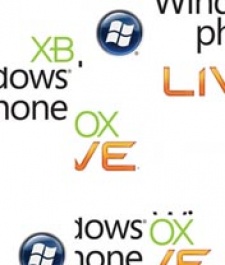With Microsoft's smartphone reboot finally due to go live this week, it's time to consider the likely success of the long gestated strategy.
There are some good, if early, signs.
The technical hardware requirements enforced by Microsoft means there's a coherence to the platform, and handset support is strong with nine devices in the US and six in Europe from OEMs such as HTC, Samsung, LG and Dell.
There have been 500,000 downloads of the developer tools, which as you'd expect are robust consisting of the same C# based SDK as used for Xbox Live Arcade games.
Microsoft is curating the Marketplace, ensuring it will be busy with over 60 games ready to roll out during the launch period. The company has also promised $500 million of advertising.
Equally important, the operating system feels intuitive. Even if the tile-based user interface is a little gimmicky and may date quickly, it's pleasant to use.
In general, then, Windows Phone 7 seems to be a contender when it comes to the competitive world of iOS, Android, BlackBerry, Symbian and bada.
Longterm strategy
The more interesting question is whether the platform will appeal to consumers, and, if so, to whom?
Of course, there are clear reasons for business users to buy such phones, thanks to the tight MS Office integration, although BlackBerry still holds the high ground with many power and enterprise users. Other general users may just get such phones as they provide good value in terms of the general upgrade cycle from feature to smartphone.
Yet, with Xbox Live integration being the platform's unique selling point, the gaming audience has to be considered key to Windows Phone 7 success.
Current Xbox gamers are the most obvious target as not only have they demonstrated a propensity for Microsoft products, they'll also be able to plug directly into their existing gaming community on the move, thanks to the Xbox Live integration with respect to avatar, gamerscore, and the like.
Barriers to entry
Of course, the question of how many of the current 20+ million Xbox Live subscribers will immediately dash out to buy a Windows Phone 7 device is hard to gauge.
Some will no doubt already be happy iPhone or Android owners, while Windows Phone 7 launch devices aren't cheap (especially SIM-free), and, thanks to the platforms' heavy use of always-on services, will require a flat rate data tariff. Similarly, Xbox gamers looking to buy such phones on a contract will have to wait until they can upgrade.
Both trends will reduce the immediate numbers of fans available in the launch window to the end of 2010.
The lack of realtime multiplayer features between phones and Xbox 360 at launch - however nonsensical in terms of coherent game experience, and business models - may remove some of the initial gloss for the real hardcore too.
Yet, over time, and as the list of shared features between the two platforms grows, it seems likely Windows Phone 7 will pick up a decent number of Xbox 360 users, especially - on the back of Microsoft advertising - in countries with strong Microsoft console communities.
Flip, reverse it
Ironically though, what could be as significant to Microsoft is how it handles the opposite flow between the platforms. For example, could Windows Phone 7 be as important to the future of Xbox Live as a gaming community, as Xbox 360 Xbox Live users are to Windows Phone 7 handset sales?
The reason is that any Windows Phone 7 user can register an Xbox Live account on-device, creating their own avatar on the phone, and partaking of the services - at least, those made available to mobile players.
This will fragment the Xbox Live community, creating three groups - one very large one consisting of existing hardcore console gamers, one much smaller one consisting of more casual, mobile gamers, and an indeterminate mixture who are signed up via both devices.
Hence the challenge for Microsoft will be to two-fold.
It will need to encourage the two extremes to convert to the combined user group by persuading Xbox owners to get a Windows Phone 7 (and vice versa), while rolling out crossover services to those who remain committed to a single device so that everyone is content with their Xbox Live experience, while simultaneously also being tempted to upgrade into the fully integrated Microsoft console-mobile world.
And that could be a very tall order, even with a $500 million warchest.
Opinion: Will Windows Phone 7 fragment the Xbox Live community?
Or can Microsoft convert console and mobile owners into multi screen gamers?






















